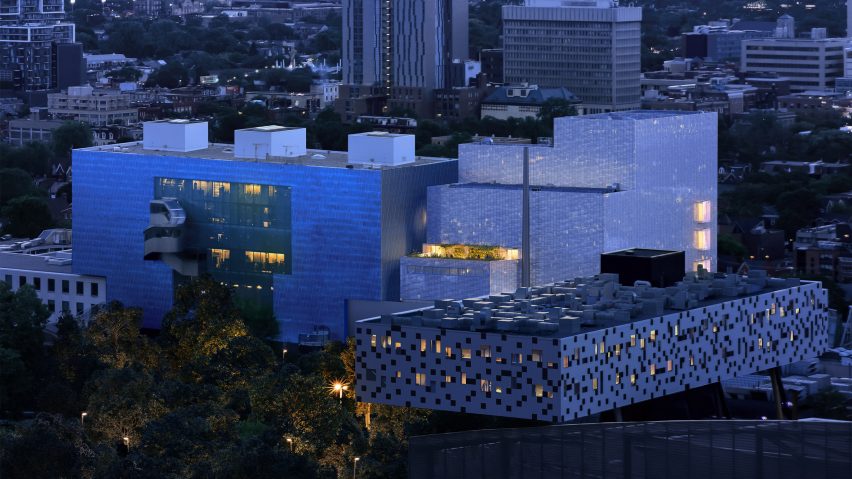Selldorf Architects, Diamond Schmitt and Two Row Architect have released designs for a gallery to be added to the complex of buildings at the Art Gallery of Ontario in Toronto.
The design incorporates a brand-new building on top of a pre-existing parking lot, next to the Frank Gehry-designed 2008 expansion.
Called Dani Reiss Modern and Contemporary Gallery, the extension will consist of a rectilinear volume with five storeys that step down towards a park at the centre of the complex.
New York studio Selldorf Architects was tapped as design architect to carry out the structure's design alongside local studios Diamond Schmitt (lead architect) and Two Row Architect. The project marks the seventh time the Art Gallery of Ontario has been expanded since it first opened in 1900.
"In the design of the new expansion, we were motivated to create something that would at once announce its presence in a strong and impactful way, relating to and respecting the adjacent Gehry building, Grange Park and OCAD University urban context as it simultaneously almost blends into the sky depending on the changing light and climate," said Selldorf Architects principal Annabelle Selldorf.
"Integrated with the existing museum, the addition is conceived to serve the art and the community alike."
The facade will have a reflective surface configured in small brick-like panels that complement the adjacent Gehry building while still marking a distinct profile on the campus.
The new building will expand the display space for the museum by adding 13 new galleries and increase the total amount of space to be used for displaying art by 30 per cent.
Two Row Architect has been chosen to lead an "ongoing consultation with Indigenous leaders and communities" in order to improve the building's adaptability, relevancy and inclusivity.
According to Two Row principal Brian Porter, this will expand the conversation around reconciliation – the process of political accountability initiated between the Canadian government and First Nations – to "the very architecture of the place."
"The design integrates craft, cultural narratives, and the values of Indigenous peoples that can contribute to a curriculum of learning, sharing, healing, and celebrating," said Porter.
"This is achieved through three key indigenous values: Adaptability, Biophilia and Kinship," he continued.
"The AGO addition includes open, adaptable areas to serve an evolving need to highlight Indigenous artists and host community gatherings."
Examples of these principles include the inclusion of "vantage points" and terraces that connect the building to the environment and create spaces for the community to gather.
The AGO was first constructed in 1900 with a design that incorporated an early 19th-century neo-classical manor called Grange Hall, which still stands on the campus.
A number of other renovations have been carried out in the years since, including interventions by KPMB Architects and Hariri Pontarini Architects.
Selldorf Architects was founded in 1988 and is also currently planning a remodel of the Sainsbury Wing at the National Gallery in London.

